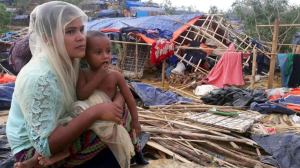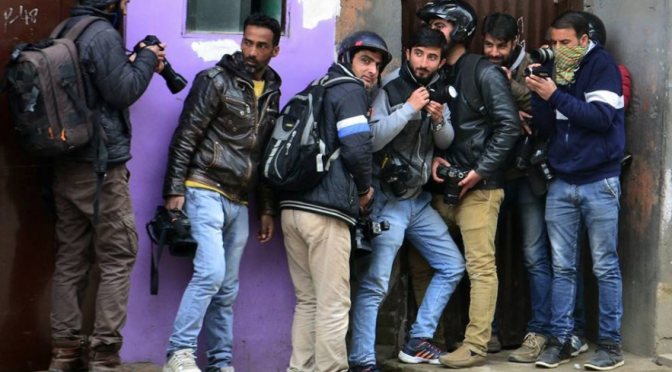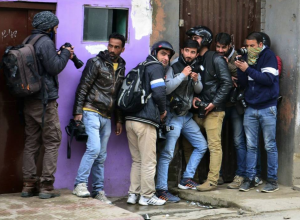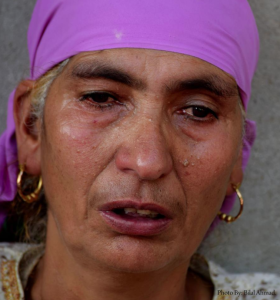My neighbor chained his dog day & night without shelter as a guard dog. I just saw he got loose & took off. I think this is the second one that got away. It’s monstrous to tether a dog like that without exercise, affection, any interaction. Godspeed to the dog. May he find a better life than the hell he had.
Monthly Archives: June 2017
On Wahhabism & scare-mongering about jihad
For an article for Pakistan Today, I’ve read several books on Wahhabism & scare-mongering about Jihad. I’m guessing that makes me an authority among most non-Muslims. And believe me, I know nothing because unfortunately most of the scholarship available to me was written by US State Department types. The same situation I found studying Kashmir.
Muhammad Ibn Abd al-Wahhab, the 18th century Islamic scholar, founder, & ideologue of Wahhabism, wrote 14 volumes which I have no intention of reading despite accusations his theological writings are the ideology of modern “jihadi terrorism.” I’m interested first, in the relationship of Wahhabism to the Saudi state, which wasn’t formed until 140 years after his death; & second, if Wahhabism has any actual significant influence on extremist militias like ISIS or political currents like the Muslim Brotherhood.
It’s an extremely complex history which I’ve only scratched the surface of thus far & just in Saudi Arabia. But one thing I know for sure: understanding the politics of the Middle East lies more in colonialism, war, occupation than in Islamic theology. If you understand how Christianity functioned within the European colonial system, it’s easier to conceptualize the situation with Islam in the Middle East.
Like the US civil rights movement increased scholarship among Blacks, Latinos, Native Americans that made chopped liver out of the racist histories we were taught in college, more & combative Muslim scholars will have to emerge to take on the rubbish that fills the shelves as scholarship.
“Atrocities of the Palestinians”. That’s a good one! Much like atrocities of Dalits, Adivasis, Kashmiris and Muslims.”
–by a Palestinian supporter in a discussion on Bobby Kunhu’s wall answering a man who claimed Palestinians use their children as suicide bombers & whose primary source of information was Wikipedia, owned by a Zionist feted by Israel for services rendered to propaganda.
Stand in solidarity with Rohingya made homeless by Cyclone Mora
I will refrain from posting the video of laughing Assad troops torturing a wailing baby goat because it didn’t have an ID card & cannot say it loves Assad.
What we admire in others reflects same quality in ourselves
It probably can’t be said enough that what we admire in others usually reflects that same quality in ourselves. I heard that first said after I had given the eulogy for my socialist mentor George Lavan Weissman who died in 1984 at the age of 70.
George & I could not have been more different in our backgrounds: he was an only child from a wealthy family; I was one of 19 kids with an electrician father. But we shared an antipathy to groveling & grandstanding & a belief in the human race. I got to know him because in 1974, after his first wife died, he remarried a woman in New Hampshire & spent most of his time there. I took over managing his house in NYC where he spent a week each month for editing work.
He was an oddity to me: a man with a Harvard education, wealth, an extremely intellectual person with considerable political knowledge, but no hauteur. No attitude. No condescension toward people like me. I said to him once (heedless of the insolence): “You could have been somebody, George. Didn’t you ever want to be somebody? Why’d you stick with being a socialist?” He answered me, “I always thought self-aggrandizing ambitions were beneath the dignity of a socialist.”
When I gave his eulogy, I talked about that quality in George. George Breitman (a peer of George’s & the editor of Malcolm X’s writings) approached me & said “I never met you before but I know you from your eulogy. I know what you value. What we value in others reflects who we are.” I’d never thought of that before. But when people say they admire my passion for justice, they are really expressing their own passion for justice. And that is the profound affinity which has brought us together on social media. ![]()
Iconic photo of grieving Kashmiri boy
An interesting article in Indian media about this young boy grieving the death of a mate killed by what Ather Zia calls a “targeted stray bullet” last March.
The image is so wrenching & powerful that it went viral & must be causing the Indian army no end of sleepless nights. They think an internet blackout will deter such images from being seen? They underestimate Kashmiri resistance, tenacity, inventiveness.
End the occupation. Self-determination for Kashmir.
You call me bitch, I kick your ass. It’s that simple & very swift. We never see you again on my wall. Amen.
Tribute to photojournalists in Kashmir
We should take a moment to honor Kashmiri photojournalists who risk their own lives to report on the occupation. Without their presence on social media, we would not know the scope of violence & grief Kashmiris endure. Media would still only be doing flower gardens, snow-covered trees, fishermen on Dal Lake but now are compelled to publish at least some photos of the brutal occupation.
This photo from Basit Zargar was captioned: “Saving our skin from teargas shells, stones & rubber bullets during clashes between government forces & Kashmiri protesters in the old city of Srinagar.”
End the occupation. Self-determination for Kashmir.
(Photo by Basit Zargar)



